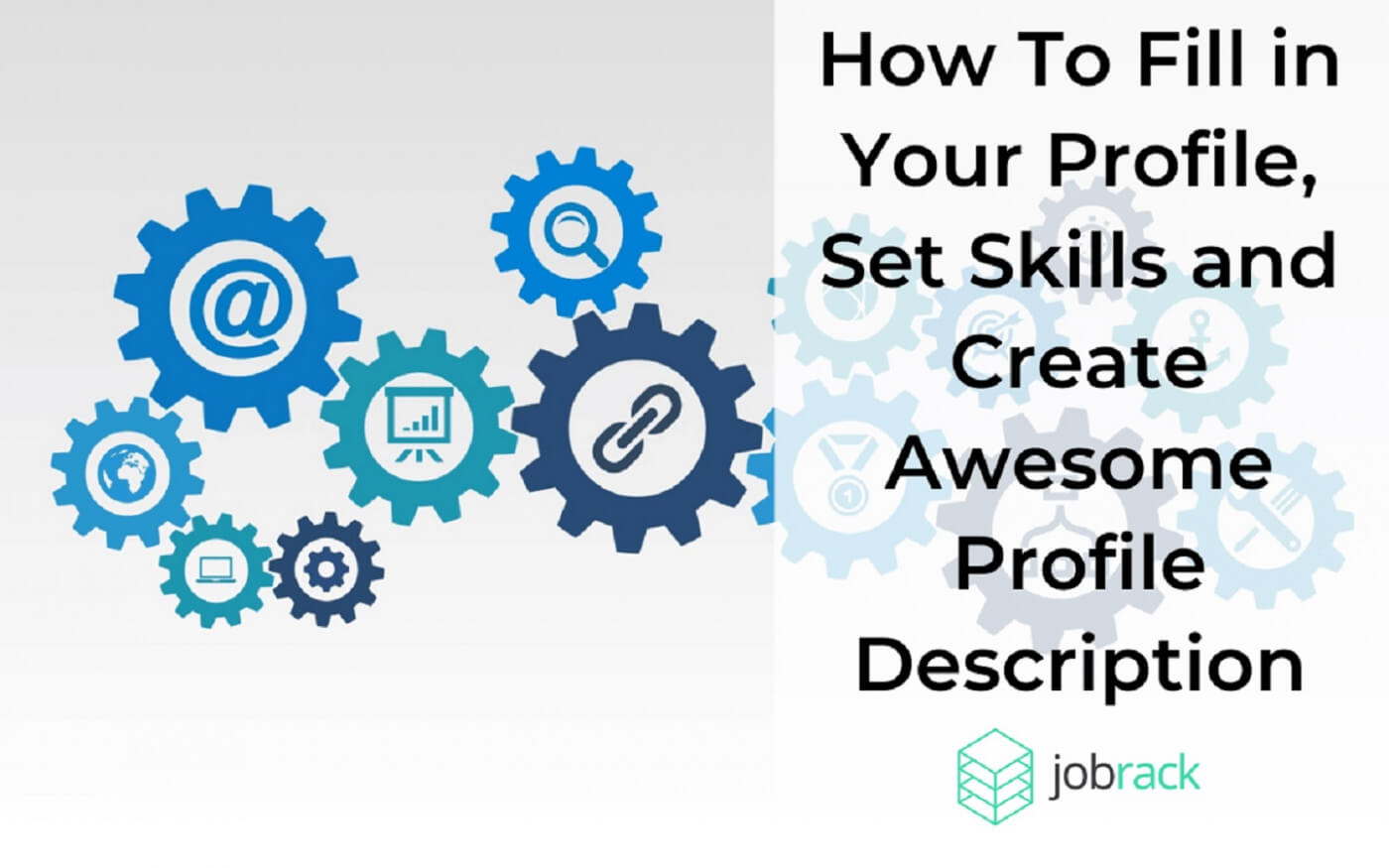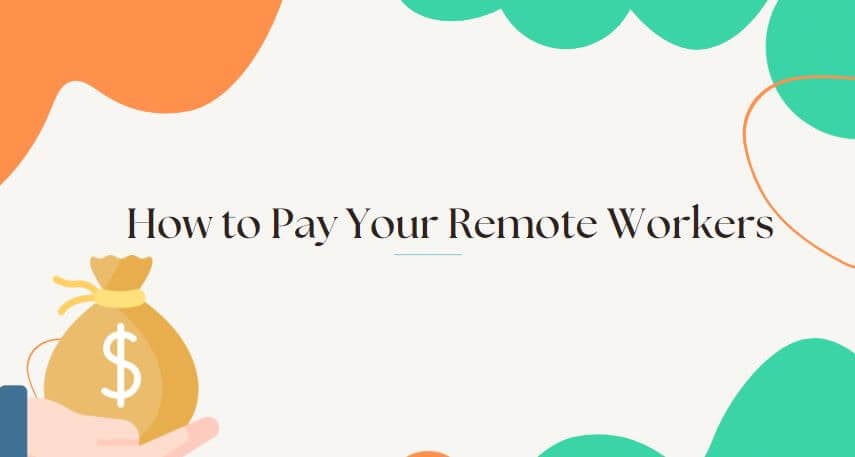Writing a cover letter is very important when it comes to getting a remote job.
In this article, we’re going to talk about writing a cover letter.
When we say cover letter you should think of it this way: the Cover letter is the first thing employers read before they open your CV and/or check out your profile. It’s your chance to give an amazing first impression, and the first impression is really important because:
- It will play a huge role in employer considering to hire you or not
- You can only make it once
If you are sending your CV to the employer then it often is basically a cold bunch of information about you. Your name, phone number, address, education, past experience, and qualifications. Most CV’s don’t contain many warm words that really bring you and your skills to life and start to give a sense of who you are.
Those words are very important if you want to try to create an emotional connection between you and the employer. And if you are wondering why you should want to create that emotional connection, there are multiple answers:
- Because this is your first chance to make a great impression and show why you want this job.
- Because in many cases, you might not have all the skills that employers are seeking. With a great cover letter, you can emphasize those you do have and why you’re still a great choice for them
- Because even though employers are highly interested in your skills, they are also interested in knowing what kind of a person you are.
- Because others do it, so if you don’t do it, they are already one step closer than you
A cover letter is a 200-500 words letter or a simple message that you write when you are applying for a job, and you have one shot to:
- Properly introduce yourself
- Say which position you are applying for and WHY
- Show that your skills and experience match what they need for the job to be done.
- Show soft skills, personality, your character, and some private goals that are related to the job
- Answer any specific questions the employer may have asked you to do in the job advert
You should always include a cover letter/message unless the job advertisement clearly says not to.
How long should my cover letter be?
Keep it short. A cover letter is meant to be a brief introduction so don’t write more than 300 words
Huge cover letters are likely not to be read. They don’t know you, they have multiple applicants, and reading your autobiography book of a cover letter would probably be a waste of their time.
How to write a cover letter?
Here’s the first rule.
Never use the same cover letter template for all jobs you are applying to.
The cover letter needs to match the particular job you are applying for. It should be personalized for each different job you apply for
Here are a few things you should do before writing.
Find out who to address it to
If you can, find the name of the person recruiting for the job and address your message to them. Addressing to someone directly helps to create a better connection with the reader.
You can find the name by:
- Googling the company
- Reading entire job description ad – Employers sometimes leave a signature
- Checking if they had previous job ads or any information that might contain employers name
It’s not really a big deal if you can’t find the name but always do your best to do so. Trust us, it’s worth it.
Just don’t start a letter with “To whom it may concern”. That always gives a feeling that your cover letter is generic and probably not worth reading.
So start with something like Hi or Hello, and if you have the name of the person who is receiving the application, include it there.
Make sure you know all about the job
Not reading the full job description in the advert is an obvious sign that you are unprofessional and not dedicated. If you can’t take a few minutes to read the job description, then you shouldn’t even apply for the job.
A good job description will include things like what is a must-have, what is a bonus-have, what will be expected from you, what can you expect from them. Pay careful attention to what’s written and whether they’ve asked for specific things from you like mini-tasks or specific things they want you to include in your initial message.
All of this information can be used in your cover letter, and that will be the first sign to the employer that you took some time to read through it, and you are responding to what they’ve asked.
Find out more about the company
Google is your best friend.
Finding more information about the company will result in you being able to show your interest in the company and what they do. If they have a website, read the “About” section. Tell them why you’re interested in them and their company in your cover letter.
What to include in your cover letter?
First and foremost, your name and contact details.
You don’t have to provide them with your postal address since you will be working remotely, but your email and phone number is a must.
When it comes to getting an online remote job, employers are not likely to reach out to you via phone. But having it there looks professional, and trustworthy.
Also, make sure your email address is not something like “jigglywiggly94[at]xmail[dot]com”.
We suggest that you have a professional email address. Make it simple – something that includes your first name and your last name is a good way to go.
After that, start writing by mentioning the job you’re applying for.
- Tell them that you are reaching out to them with your CV and that you want to apply for whatever the job is.
- Now when they know who you are, and why are you sending this letter, tell them more about yourself.
- A brief summary of how your skills and experiences match the job description
- What kind of a person are you, what drives you, what are your goals.
- Some previous projects you worked on, where you demonstrated those skills and perks.
In most job descriptions you will find section “desirable skills”. This can be a huge benefit for you because you can practically say what they want to hear.
The important thing is not to lie about it. If you really have some of those desirable skills, include them, but if you don’t you can say that you don’t but you have some other skills you believe they would find useful and what you would do to get the skills that you don’t have right now.
And then we come to one of the most important parts of the cover letter:
Tell them why you are the right person for the job.
This is the part they want to hear most about. Switch sides for a second, and imagine you are hiring, and you have 15 applicants with similar skills and experiences. You want to know who is the right person for the job.
When you start thinking this through and writing it, try to speak their language. Using the same language as people who do a particular job shows that you understand the industry or field that the employer works in.
This will create a scenario in employers mind:
- That you know your thing and what are you talking about
- That you are on the level they need
- And that you are confident.
Being confident and able to believe in yourself is rare these days, and employers value that.
Last, but not least – call to action.
Your cover letter should finish by asking the employer to review your application and that you’d be keen to progress to the next stage of interviews and the chance to speak with them.
Try something simple like, “I have attached a copy of my resume. I look forward to hearing from you about this job” or “You can read more details about my skills, knowledge, and experience in the CV I have attached or in an interview that I’d be keen to have”.
Mistakes to avoid when writing a cover letter
There are some things that should never be in your cover letter. Make sure you remember them and avoid getting rejected at the very first stage.
Spellcheck and grammar
Always spellcheck your cover letter. It’s even better to get someone else to read it and point out any mistakes or confusing things. Spelling is very important, you may not have perfect English skills and that’s ok, just show them that you take pride in your work with a simple spell-check and proofread.
Double-check all the information in your cover letter. You don’t want to provide false information or have something that sounds confusing in your letter.
Poor spelling, incorrect grammar, confusing sentences, false information, those things are extremely unprofessional so take the time to get it right the first time.
Including your CV in your cover letter
Don’t just cut and paste your resume into your cover letter. Try to re-word the information from it, rather than just repeating it.
Think of it this way: CV is a summary of your career and work life, and cover letter is storytelling, bringing it to life, teasing the most interesting details to make the employer want to read more from your CV.
Unnecessary information
You need to think always “What’s in it for them” Why should they hire me?”.
It’s your cover letter, and they expect you to include information about yourself, but there’s no need for writing 200 words how you love pets, walk on the beach and good wine.
At that point, you are using “I” too much because it’s not used in a way that provides value to the reader.
Make sure your letter always contain concise information about your past history, your wannabe future, and your beliefs. Anything more than that is unprofessional and will result in the employer not being focused on the most important parts.
Your other job applications
You are probably applying for more than one job at a time. However, it’s best not to mention other job applications. Your letter should aim to convince the employer that you really want this job.
Now you know how to write a cover letter for job application, you can apply for the great jobs we have ready for you!
There’s currently dozens of active job posts where high-quality companies worldwide are searching for remote workers! Check out our job board and find the best job for you!



